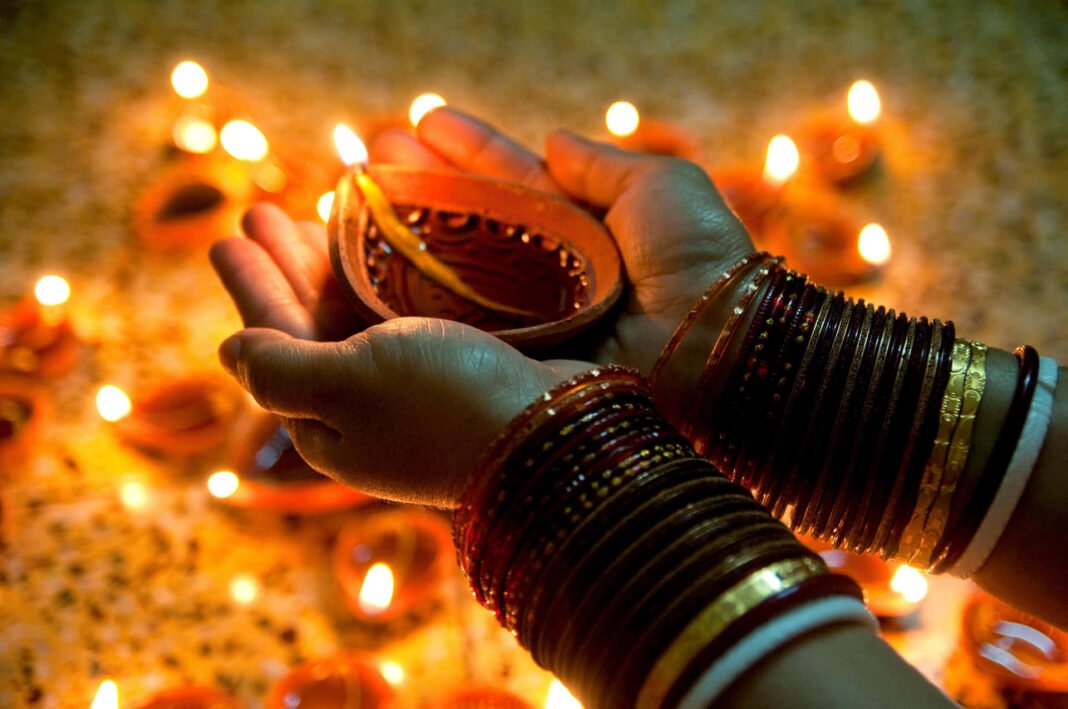Diwali, also known as Deepavali, is one of the most cherished and widely celebrated festivals in India and among Indian communities around the world. This festival, often referred to as the “Festival of Lights,” signifies the victory of light over darkness, good over evil, and knowledge over ignorance. Diwali brings together families and communities, creating an atmosphere of joy, unity, and spirituality. In this article, we will explore some of the best ways to celebrate Diwali, highlighting its rich traditions, customs, and significance.
Cleaning and Decorating the Home
Diwali preparations typically begin weeks in advance. One of the first and most important aspects of celebrating Diwali is cleaning and decorating the home. People thoroughly clean their houses, get rid of clutter, and give their living spaces a fresh start. This symbolizes the removal of negativity and the welcoming of positivity into one’s life.
Decorations play a significant role in Diwali celebrations. Homes are adorned with colorful rangoli designs made of colored powders, flower petals, and diyas (oil lamps). The sight of these vibrant patterns at the entrance of homes is not only visually appealing but also spiritually significant, as they are believed to invite Goddess Lakshmi, the goddess of wealth and prosperity.
Lighting Up the Diyas and Candles
The essence of Diwali lies in its name – the Festival of Lights. Lighting diyas (oil lamps) and candles is a central tradition during this festival. Families gather in the evening to light these lamps, which are placed around the house, balconies, and courtyards. The soft, warm glow of diyas symbolizes the victory of light over darkness and dispels negative energies. It creates a magical and serene atmosphere that is perfect for prayers and celebrations.
Bursting Firecrackers
Fireworks have been a traditional part of Diwali celebrations for years, as they are believed to ward off evil spirits. However, in recent times, there has been growing awareness about the environmental and health hazards associated with fireworks. In response, many people are opting for eco-friendly celebrations by limiting the use of fireworks or choosing quieter, less polluting options.
A mindful approach to firecracker usage not only helps protect the environment but also ensures the safety of pets and individuals with respiratory issues. Instead of indulging in noisy fireworks, consider enjoying the beauty of the night sky with visually captivating and eco-friendly firework alternatives.
Exchanging Gifts and Sweets
Diwali is a time for giving and sharing. Exchanging gifts and sweets with family, friends, and neighbors is a cherished tradition. People select thoughtful presents, ranging from clothing and jewelry to electronics and home appliances, to express their love and appreciation. Alongside gifts, the exchange of homemade sweets like ladoos, barfis, and jalebis adds a sweet touch to the festivities.
Prayers and Pujas
Diwali holds deep spiritual significance for Hindus, Jains, and Sikhs. It marks the return of Lord Rama to Ayodhya after defeating the demon king Ravana, signifying the triumph of good over evil. For Hindus, Diwali also celebrates the goddess Lakshmi’s arrival, symbolizing prosperity and wealth.
The evening of Diwali is dedicated to prayers and pujas (religious rituals). Families visit temples or create small prayer spaces at home to seek blessings for a prosperous and harmonious year ahead. The chanting of mantras, the lighting of incense, and the offering of flowers are integral parts of these ceremonies.
Feasting and Special Meals
Diwali is a time of indulgence in delectable dishes and sweets. Families prepare an array of mouthwatering delicacies that vary by region but often include samosas, biryanis, and an assortment of sweets. It’s also a time when people exchange homemade snacks and sweets with loved ones, symbolizing the joy of sharing.
Cultural Performances and Entertainment
Many cities host cultural events, fairs, and performances during Diwali. Traditional dances like Garba and Raas, which are popular in Gujarat, are performed with enthusiasm. The exchange of cultural experiences enriches the festive spirit and showcases the diversity of India’s traditions.
Giving Back to the Community
Diwali is a time to reflect on one’s blessings and share them with those less fortunate. Many people choose to donate to charitable organizations or distribute food, clothes, and gifts to the underprivileged. This act of giving reinforces the spirit of compassion, unity, and service that Diwali embodies.
Conclusion
Diwali is a festival that beautifully encapsulates the essence of India’s rich cultural heritage and spiritual beliefs. It’s a time for families to come together, celebrate their traditions, and create lasting memories.

